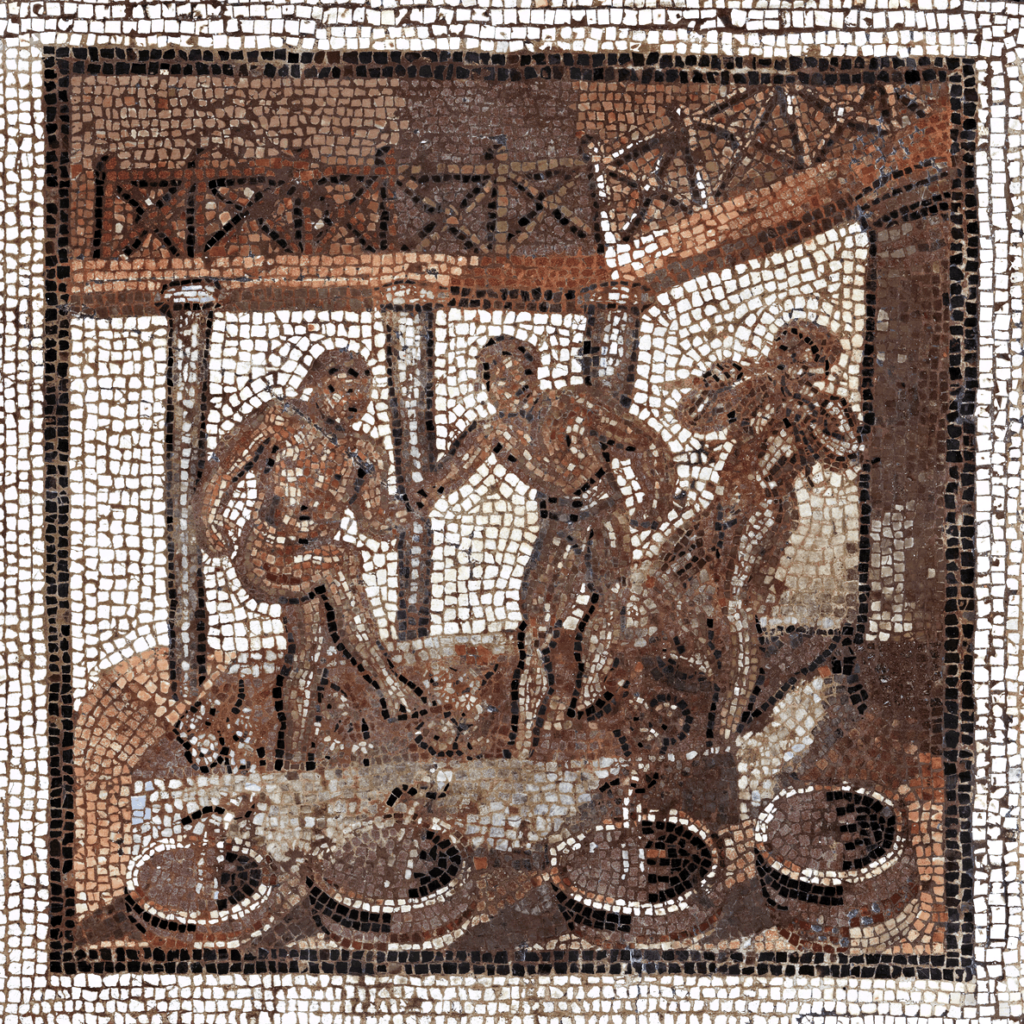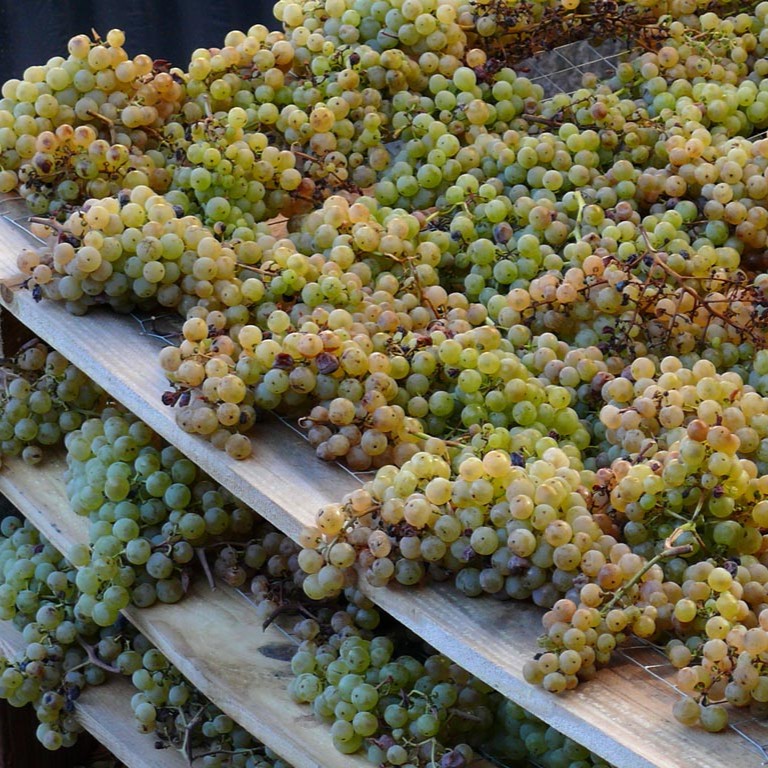Translated from French with ChatGPT (please notify us of errors)
Not to be confused with the grape juice from our supermarkets. Living in a wine-producing region, one sometimes has the opportunity to taste, during the harvest season, a must freshly out of the press. A golden, cloudy beverage that quickly becomes slightly fizzy and frothy as the natural fermentation process kicks off.
This fresh vine product was what the ancient Greeks called gleukos, and the Romans termed mustum. Unfermented juice or alcoholic new wine? The question divides experts. But it’s somewhat moot. The main characteristic of gleukos is its sweetness, as its Greek name suggests[1]. Indeed, if this drink is sweet, it’s because not all the sugar has been converted into alcohol. Hence, it’s low in alcohol. QED.

Gleukos was available to those forbidden from drunkenness: women, children, slaves. However, since the fermentation wasn’t stable, the drink could be deceptive. In the Acts of the Apostles, a Christian text from the 1st century, the narrator describes the reaction of people seeing Jesus’ disciples under the influence of the Holy Spirit. Some were impressed, “but others mocked, saying: They are full of gleukos“[2]
Cooking…
If one didn’t want to make wine from the pressed grapes, the main challenge was to preserve the must from fermentation. Ancient agronomists describe numerous methods for this.
The most common was reducing the liquid through cooking. Pliny the Elder explains that when reduced by a third, the result is called sapa by the Latins and hepsema elsewhere[3]. If reduced by half, it’s termed defrutum.
Cooking both eliminates the bacteria responsible for fermentation and concentrates the sugar, inhibiting alcohol production. The result is a syrup, which can be used in cooking or as a drink when diluted in water, possibly with a bit of salt and various spices.
… or Cooling
Another method described by authors is cooling. True, it doesn’t stop fermentation but significantly slows it down. During antiquity, refrigeration was no small feat
On this point, Pliny informs us: “The Greeks’ aigleucos is midway between sweet substances and wine; it’s always must. This happens because care is taken to prevent it from fermenting (they call fermentation the transformation of must into wine): the must, taken from the vat and placed in containers, is immediately immersed in water until the winter solstice has passed and the frost season arrives”[4]
Around the same time, in the first half of the 1st century AD, the agronomist Columella gives a slightly more detailed description: “To ensure the must remains as sweet as when fresh, use the following method: before subjecting the marc to the press, draw from the vat, into a new amphora, the last drained must; seal it, coat it with pitch very carefully, so no moisture can get in. Then fully immerse it in a pool of cold, fresh water, ensuring no part of the vessel is exposed; then, after forty days, remove the amphora”[5] Two centuries earlier, Cato had already described a very similar method.[6]
In addition to cooling, there’s the idea of sealing the container hermetically, so neither air nor water can penetrate.
Who knows if amphoras carefully sealed by a vintner contemporary to Cato, Pliny, or Columella aren’t waiting for us to discover them? We might perhaps find, not forty days but twenty centuries after its immersion, a drinkable must!
[1] γλεῦκος, εος-ους (τὸ), derived from γλυκύς, εῖα, ύ meaning “sweet”. The word gave rise to our carbohydrates and glucose. Not to be confused with glaukos (γλαυκός, ή, όν), an adjective denoting the color of the sea and by extension a bluish, greenish, or grayish hue.
[2]Acts 2:13 : Ἕτεροι δὲ χλευάζοντες ἔλεγον ὅτι Γλεύκους μεμεστωμένοι εἰσίν.
[3] Pliny, Natural History, 14, XI, 1.
“Elsewhere” is understood as “in the entire Greek cultural world”. Hepsema (ἕψημα) literally means “what has been cooked or boiled”.[4] Pliny, Natural History, 14, XI, 3: medium inter dulcia vinumque est quod Graeci aigleucos vocant, hoc est semper mustum. id evenit cura, quoniam fervere prohibetur — sic appellant musti in vina transitum —; ergo mergunt e lacu protinus aqua cados, donec bruma transeat et consuetudo fiat algendi.
The word aigleucos corresponds to the Greek ἀεὶ γλεῦκος: always sweet.[5] Columella, De re rustica, 12, 29.
[6] Cato the Elder, On Agriculture, 120: “If you want to keep the wine’s sweetness all year round, put it in an amphora whose walls have been coated with pitch, and lower it into a well; after it has stayed there for thirty days, remove it: it will be sweet all year long”.
Other articles in English from the Nunc est bibendum blog








